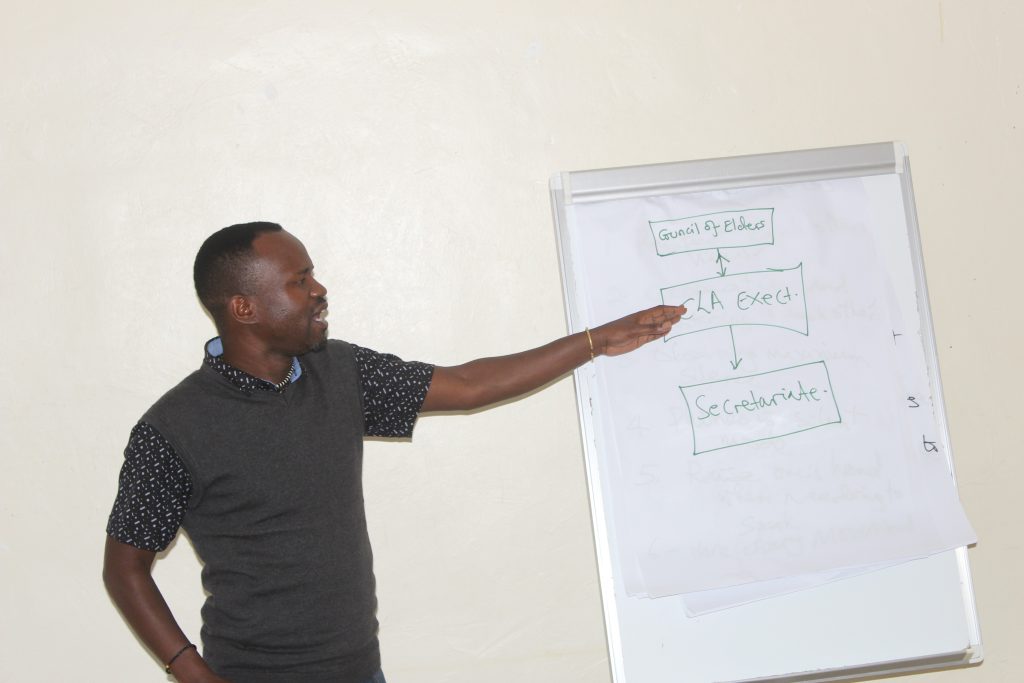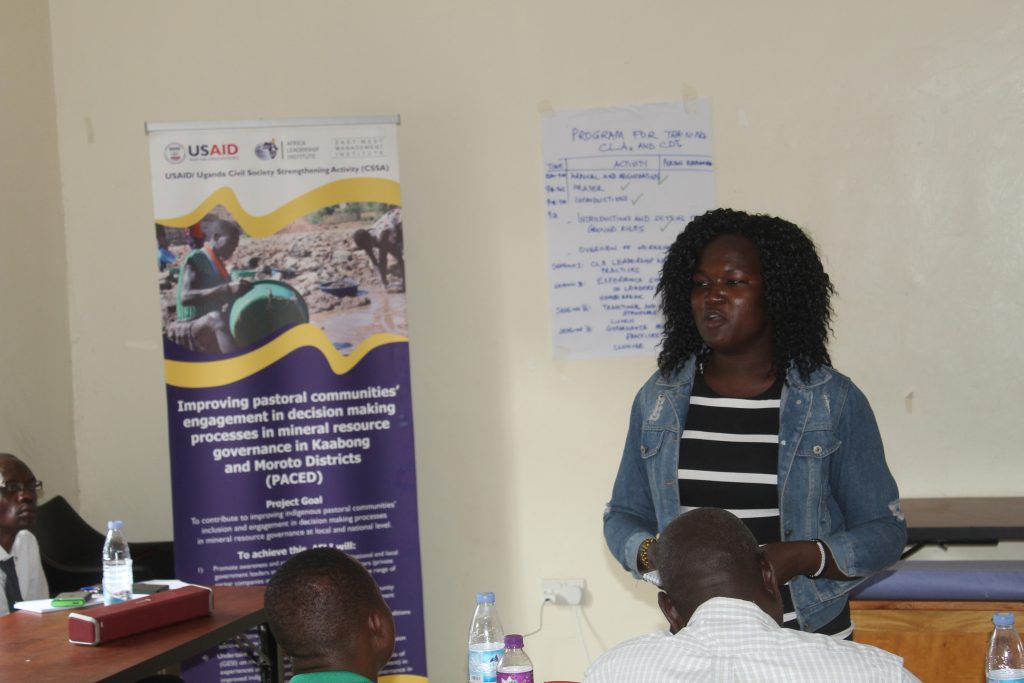Training Communal Land Associations (CLA’s) of Rupa & Lotisan Sub Counties on Leadership Skills, Internal Democracy, and Group Dynamics.
AFLI, in partnership with USAID/EWMI Uganda Civil Society Strengthening Activity (CSSA), is implementing a one-year project titled “Improving Pastoral Communities’ Engagement in Decision-making Processes in Mineral Resource Governance (PACED)” in the districts of Moroto and Kaabong, Karamoja Region, Uganda. This project aims to strengthen the participation of indigenous pastoral communities in decision-making regarding mineral resource governance and equitable benefits sharing in the mineral extractive industry in Kaabong and Moroto districts.

From Monday 6th to Tuesday 7th November 2023, AFLI organized a Workshop to train CLA Executive members from Rupa and Lotisan sub-counties in Moroto. The ultimate goal of the training workshop was to strengthen the governance capacity of CLAs so that they could effectively deliver their mandates. In previous quarters, the CLA formation process and follow-up meetings undertaken by AFLI revealed many internal cohesion issues among CLAs characterized by weak feedback and accountability mechanisms.
Additionally, democratic decision-making within CLAs, including engagement of their broader entities (constituent members), was generally weak, as evidenced by the absence of annual general meetings since their formation. This implied that all members of the community did not necessarily have a voice in the decision-making process, and thus decisions made may not have been in the best interest of all community members they represent as a whole. Consequently, some key documents (minutes, resolutions, registration certificates, and constitutions) remained untraceable for some CLAs, affecting effectiveness in CLAs’ governance and institutional operations. Furthermore, while CLAs executives had varied leadership skill sets, they needed further development (reorientation, refocusing, and igniting) to effectively serve their constituencies.
In this regard, the training was organized to pursue the following specific objectives:
• Create a common understanding of the CLAs’ internal governance and leadership gaps and agree on workable strategies to address them.
• Build the leadership skills of CLA executive members.
• Provide an opportunity for CLA executive members to share, understand and practice core group dynamic skills that promote interaction, teamwork, learning, and understanding.
The two-day customized training was conducted physically for three CLAs from Moroto district, with a total of 27 members. The trainings, held at the district level, were facilitated by experienced thematic resource persons identified locally in the target districts. There was one trainer for each day session. The training sessions used participatory approaches (group work, plenary discussions, and experience sharing) and adult principles of learning to accommodate the participant’s frame of reference and promote shared feedback. This aimed to encourage reflective learning and discussion on internal governance, leadership, and group dynamics issues. Importantly, the trainers promoted the active sharing of knowledge and experiences (promising practice models) of CLAs’ internal governance, allowing member participation in decision-making based on principles of equality, transparency, and accountability. This enabled the participants to learn and appreciate the need for effective internal governance processes and group dynamics. The trainers also provided coaching support where necessary to CLAs during and after the training workshop sessions.

